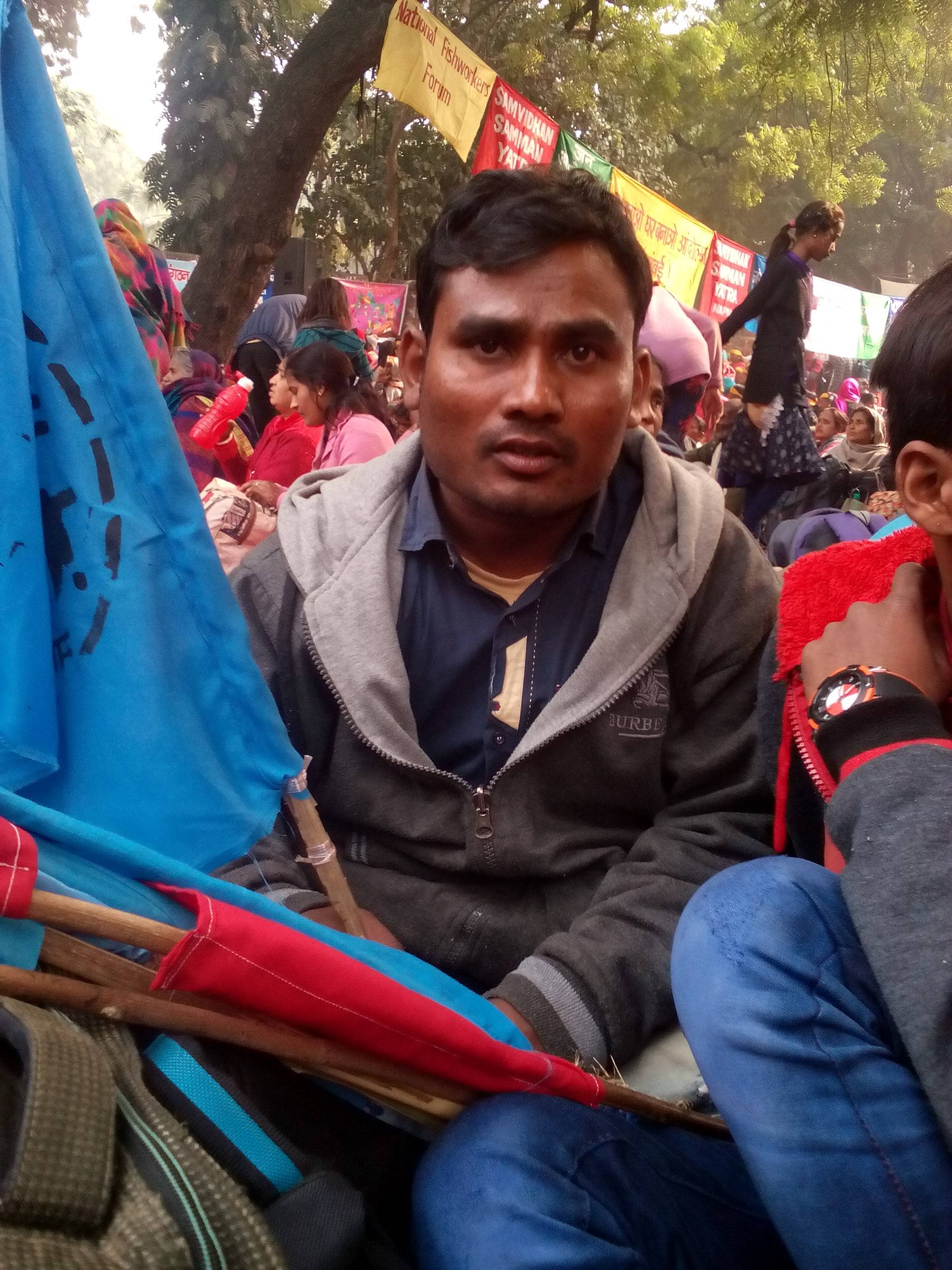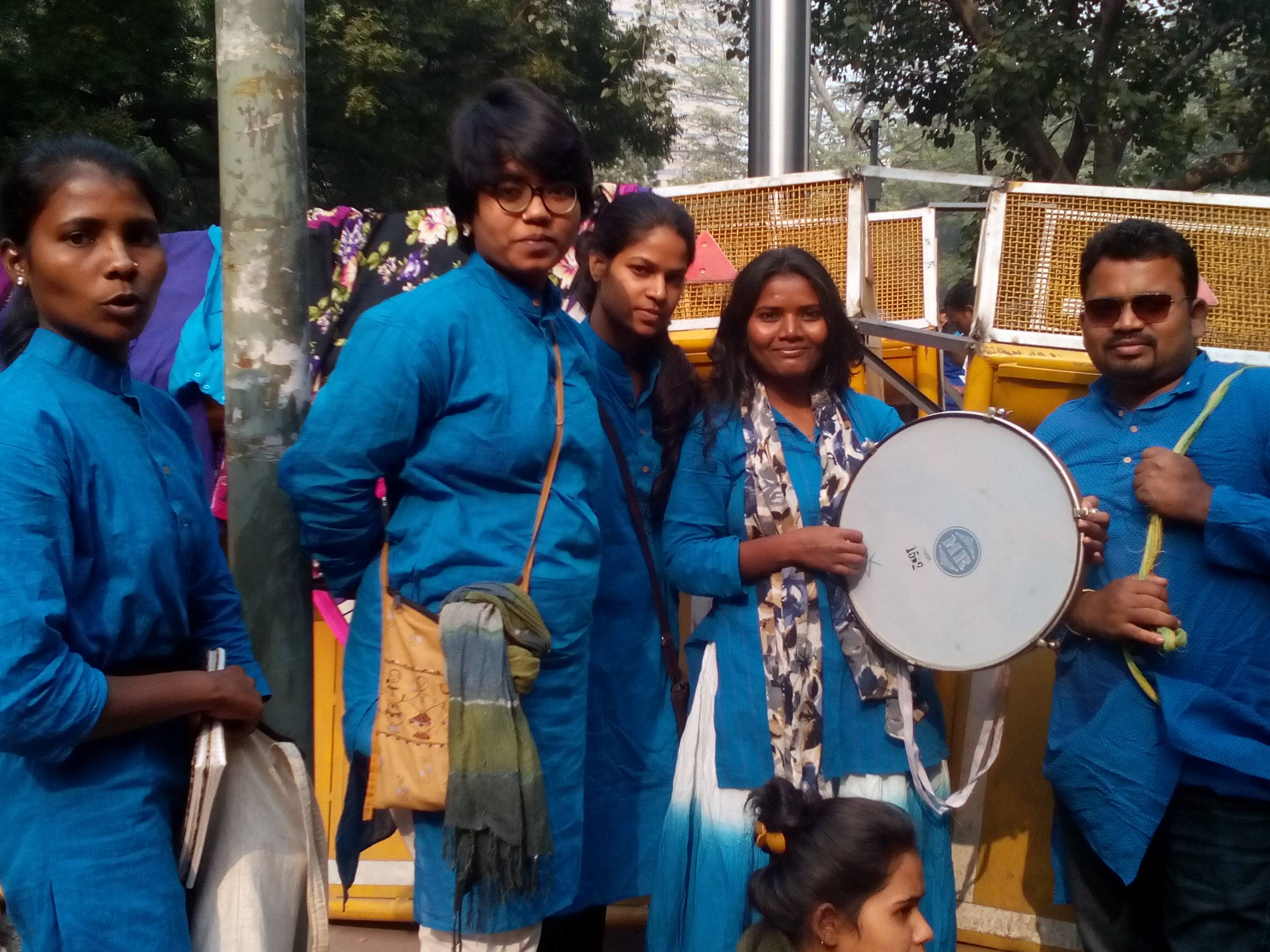Listener of Small Voices | Posted on |
Samvidhan Samman Yatra
0
5321 Views
“Need to talk about Constitution not Manusmriti”
This is what Himshi, one of the coordinators of the veritable juggernaut of the country’s grassroots population that finally halted in the Capital on Dec. 10 after its 3-month journey, asserted. She has been working for the past two and a half years with the National Alliance of People’s Movements (NAPM) that led the march of thousands of people through almost every state of the country.
 (Himshi, Coordinator, NAPM)
(Himshi, Coordinator, NAPM)
The NAPM was formed in 1992 to demand attention on the adverse impacts on the poor and marginalized of the Government’s liberalizing of the economy, as well as its blatantly divisive interference in religious matters, as seen in the implementation of the Narmada Dam and Babri Masjid demolition at the time. Since then, it has been mobilizing support from the ground to speak out against agrarian crisis, natural resources depletion, corrupt political-corporate nexus, the growing gap between the rich and poor, caste and gender-based atrocities, as well as State violence through laws, like the AFSPA.
 (Participants)
(Participants)
This Yatra was symbolically flagged off from Dandi, Gujarat, where Mahatma Gandhi launched his historic Salt March in 1930 protesting against the tax imposed by the British on the humble mineral that was freely available to the poor in the region. NAPM’s Yatra sought to echo the same sentiments against the Government’s anti-poor policies as it crisscrossed the country.
 [Medha Patkar, Narmada Bachao Andolan (NBA)]
[Medha Patkar, Narmada Bachao Andolan (NBA)]
Chetan, an activist from Nandurbar, Maharashtra, who has been working with the rehabilitation of the displaced by the Narmada dam, was an enthusiastic Yatra participant, along with 30 others from his part of the country.
 (Chetan, Activist, Nandurbar, Maharashtra)
(Chetan, Activist, Nandurbar, Maharashtra)
“Yes,” he affirms, “together we can be successful. We have worked tirelessly in our region for the displaced tribal population not only to get appropriate land but also proper education and livelihoods.” One such initiative was the Jeevanshala school, of which there are nine in just his district. “We also made sure teachers were appointed, and that they took classes.”
 (Podium)
(Podium)
Gulab Singh, 25 years old, is a product of one such school. He went on to do his Masters in Social Work and is also now working to ensure the local population its rights. “My father is a farmer; it is only because of the school that I could go on to do what I’m doing, and not work on the fields, which would have been my only option otherwise,” he says.
 (Gulab Singh, Activist)
(Gulab Singh, Activist)
Aatika, member of the All India Students' Association (AISA), a left-wing student organization spoke about how refreshing it was to participate in the Yatra – out of the “echo chambers” of the capital to hear real people tell their stories. While on the other hand, the journey raised awareness about the Constitution and people’s rights among thousands of people along the way through banners, leaflets, brochures and magazines in English, Hindi and local languages, as well as through speeches and talks.
 (Raising awareness through street plays)
(Raising awareness through street plays)
“Our national meetings will start from tomorrow to discuss our strategy forward,” said Himshi.
